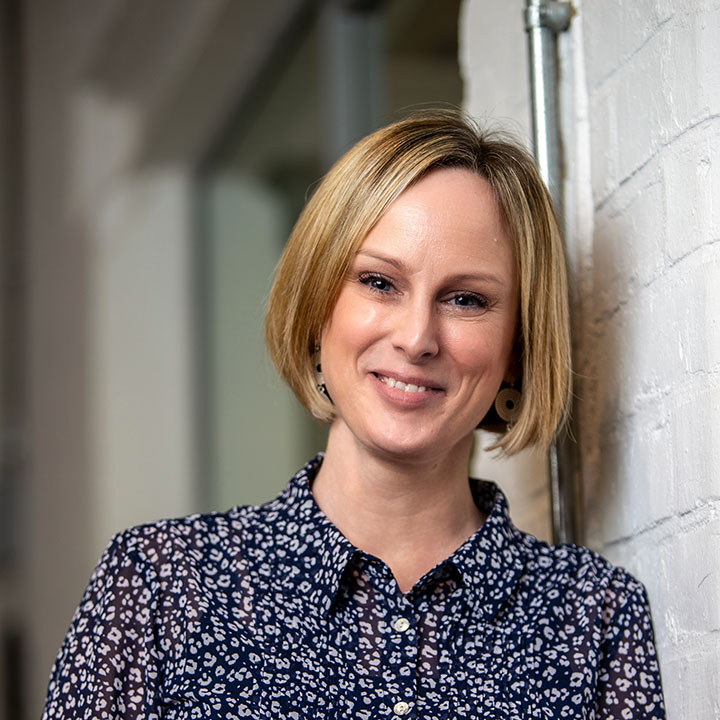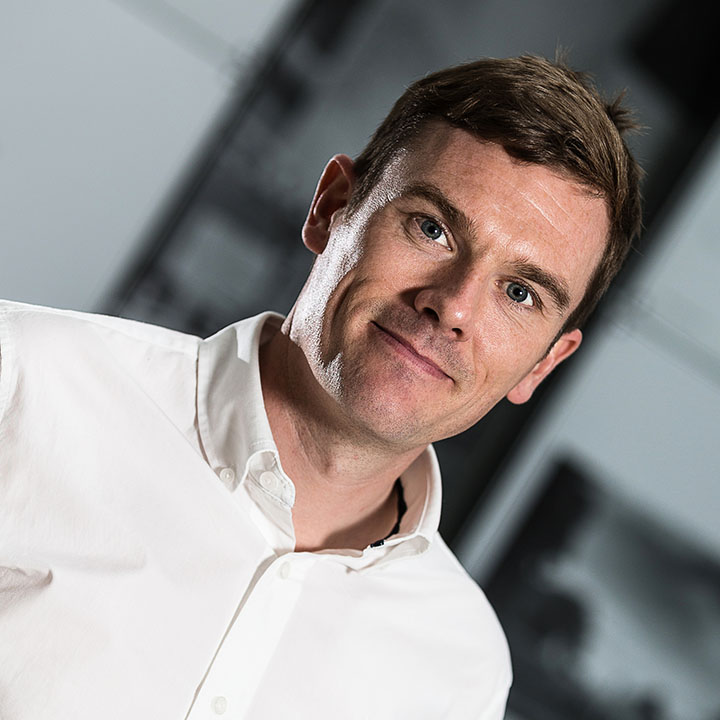International Women’s Day 2023
As part of International Women's Day 2023, senior architect, Aga Milanov, shines a light on working mothers in architecture and the expectation that accompanies the reality
To mark International Women's Day, our people discuss diversity in leadership and how that looks in their stories across Ryder.

Diversity in leadership brings invaluable benefits to a business. A greater breath of experiences and perspectives helps to foster a stronger culture of innovation and inclusivity. It also provides a wide range of mentors and role models, supporting diverse talent attraction, development and retention.
Ryder already has a positive culture of inclusivity and a commitment to seeing greater diversity, including increased female representation, in leadership roles. But there are currently very few female directors and team leaders.
Whilst there are many talented women rising through the architectural ranks, I think it’s positive that we, as a business, have chosen not to be complacent about the pace of change. We’ve taken steps to examine the barriers, real and perceived, to women progressing into leadership roles. I was delighted to facilitate a series of gender diversity workshops recently, which provided a platform for open and honest conversations and a catalyst for action. A task and finish group is now implementing a set of recommendations – practical steps that will proactively support, empower and encourage women at Ryder to fulfil their potential.
Kathie Wilcox
The gender diversity workshop was positive and has made me think recently as to why there are less women and minority groups in senior leadership roles, it was good to hear the point of view of colleagues across the practice.
When starting my career, the workplace was different, and it was commonplace as a junior female to be judged openly based on age, clothing choice, or body shape. Female colleagues would discuss the need to wear certain types of clothes, such as trousers instead of skirts, and to actively be more aggressive and assertive to be taken seriously – it was all part of the environment we were in.
More recently I was pulled aside by a junior colleague as they were shocked at some of the condescending attitude I’d had directed towards me during a client meeting that I was chairing. It stuck in my mind as I hadn’t even thought about how inappropriate it was, it’s often easier to shrug unacceptable behaviour off as ‘banter’.
We should refuse to accept any form of low level bullying and actively strive to call out bad behaviour rather than just ignore it. These positive steps should help to attract a more diverse range of people to apply for leadership roles and feel like they will be taken seriously.
Tessa Paice
While the built environment serves us all, the lack of gender diversity in the UK construction sector is remarkable. Data suggests that around only 1 percent of UK construction workers are female, rising to 10 percent of engineers and 18 percent of architects and surveyors. The point is not to celebrate the relative achievements of one industry over the other, rather that we must improve across the board, and quickly. While it is fair to say that more women are entering the architectural profession, with RIBA reporting take up figures of 40 – 50 percent, the pull through to registered architects should be deeply concerning at closer to the global average of 30:70.
An overly long qualification period, poor career progression – particularly to senior levels – the gender pay gap, lack of role models and often deep rooted resistance to change all frame the significant challenge at hand. We need a compelling vision, as well as targeted support to encourage women into and through construction professions.
David Stabler
I’ve always aspired to advance my career at Ryder, and while starting a family hasn’t altered that ambition, it has necessitated a shift in how I pursue it. From managing morning drop offs to adjusting my working hours, I’ve had to adapt to strike that crucial balance, and I’ve received support every step of the way. Nonetheless, I’ve encountered obstacles in reaching my goals, many of which are industry wide.
As chair of Ryder’s gender diversity task and finish group, I take pride in our efforts to remove barriers preventing women from advancing to team leader positions within the company. Gender diversity in leadership not only offers vital role models to many at Ryder but also fosters balanced decision making and a broader range of skills to our leadership team.
Francesca Harrison
As a young woman in the early stages of my career, it’s important to me that I’m able to visualise my career path. Whilst I feel incredibly lucky that I have a range of female role models in my life, it feels especially important that I’m able to look up to my female team leader, relate to her, and understand where her challenges have been and how she overcame them. I can also appreciate that generally, other junior females in the industry don’t experience the same relatability without that leader who shares the same lived experiences as a woman with them.
After studying architecture then making the move into communications, I experienced some soul searching that came with the change of career path. Am I able to hold my own in a board room, in an industry I’m newly introduced to? Do I need to explain my background experience to people to be taken more seriously? Being a young female only adds to that questioning of the self.
I’ve had the privilege of working alongside not only an exceptional female team leader, but a range of diverse colleagues, which has been fundamentally important in shaping my experience at Ryder as well as building my confidence in myself and my career choices. Being part of Ryder’s inclusivity group and engaging in discussions around how we can support plans to diversify the leadership team feels optimistic – we’re heading in the right direction, and I feel confident that we’re one of many practices that can contribute to a ripple effect across the industry.
Zoë Renwick
Gender equality in leadership is crucial for fostering diversity of thought, innovation and balanced decision making. When leadership roles are open to all genders there is benefit from a wider range of perspectives, leading to more creative solutions and improved performance.
It also inspires and creates role models for women in the practice who are at an earlier stage in their career, demonstrating that a true meritocracy exists with no glass ceilings. This encourages an environment in which everyone can feel empowered to reach their full potential through commitment and hard work.
Setting up such an environment helps to challenge stereotypes, promote fairness and enhance overall workplace morale. This ensures talent and competence are the primary factors for promotion to leadership roles contributing to a more equitable and sustainable future.
Mark CarterAs part of International Women's Day 2023, senior architect, Aga Milanov, shines a light on working mothers in architecture and the expectation that accompanies the reality
As part of International Women's Day 2022, senior architect, Andra Antone, is encouraging us all to acknowledge gender bias and become allies in empowering equality both professionally and personally
Following from last year, Andra Antone spoke to a different group of women at Ryder to gauge their thoughts of inequality in the workplace and their hopes for the future.